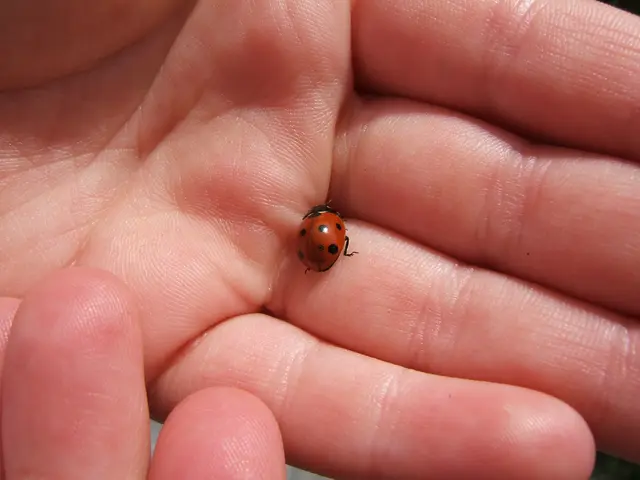Duration of Food Poisoning Symptoms
Hey buddy! Let's dive into the nitty-gritty of food poisoning, a nasty condition that nobody wants to experience. It happens when you chow down on some tainted grub that's been contaminated with yucky bacteria, viruses, parasites, or toxins. And boy, does it suck! It'll leave you feeling lousy with symptoms like nausea, vomiting, diarrhea, and tummy aches.
Most of the time, food poisoning isn't life-threatening and will go away on its own within a few days. But the length of time it lasts can vary depending on the nature of the contaminant and the severity of the infection.
Cause of Food Poisoning
There are several nasty critters and toxins that can make you sick, ranging from Salmonella to Norovirus.
- Bacteria: These little buggers include Salmonella, E. coli, Listeria, Campylobacter, and Clostridium Botulinum (botulism). Each of these can give you a different type of illness, and the severity and duration of food poisoning can vary greatly.
- Viruses: These include Norovirus, Hepatitis A, and Rotavirus.
- Parasites: Like Giardia, Toxoplasma gondii, and Cryptosporidium.
- Toxins: These toxins can be produced by certain bacteria, like Staphylococcus aureus and Bacillus cereus.
How Long Does Food Poisoning Last?
Generally speaking, food poisoning usually fades away within a few days. However, the exact length of time can vary based on the cause of the illness. Here's a break down of typical durations for common types of food poisoning:
1. Bacterial Food Poisoning
Bacterial infections are the most common cause of food poisoning. The symptoms and durations can vary depending on the bacteria and the severity of the infection. Here's how long some common bacterial infections usually last:
- Salmonella: Symptoms typically start 6 to 48 hours after consuming contaminated food and can last anywhere from 4 to 7 days.
- E. coli: The symptoms usually start 1 to 8 days after exposure and can last 5 to 10 days.
- Listeria: Incubation periods can range 3 to 70 days after consuming contaminated food, and the illness itself can last days to weeks.
- Campylobacter: Symptoms usually start 2 to 5 days after exposure and can last 2 to 10 days.
- Botulism: Symptoms can start 12 to 72 hours after consuming contaminated food and can last for weeks or even months. This type of food poisoning requires immediate medical attention, as it can be dangerous if left untreated.
2. Viral Food Poisoning
Viral infections are another common cause of food poisoning. They are often associated with outbreaks in crowded places like cruise ships or schools. Here's the typical duration for some common viral food poisoning:
- Norovirus: Symptoms usually start 12 to 48 hours after exposure and can last 1 to 3 days.
- Hepatitis A: Incubation periods can range 15 to 50 days, and the illness can last anywhere from several weeks to several months.
- Rotavirus: Symptoms start 1 to 3 days after exposure and usually last 3 to 8 days.
3. Parasitic Food Poisoning
Parasites are less common causes of food poisoning, but they can lead to prolonged illnesses. Here's the typical duration for some common parasitic food poisoning:
- Giardia: Symptoms usually last 1 to 2 weeks but can persist for 2 to 6 weeks without treatment.
- Toxoplasma gondii: Symptoms usually last for 1 to 2 weeks but can persist for long periods in people with weakened immune systems.
- Cryptosporidium: Symptoms usually last 1 to 2 weeks but can persist for months in people with weakened immune systems.
4. Toxin-Induced Food Poisoning
Toxins produced by certain bacteria, like Staphylococcus aureus and Bacillus cereus, can also cause food poisoning. Here's the typical duration for toxin-induced food poisoning:
- Staphylococcal Food Poisoning: Symptoms usually start 30 minutes to 6 hours after eating contaminated food and last for 1 to 3 days.
- Bacillus cereus: This bacteria can cause two types of food poisoning: diarrheal and emetic. Symptoms usually start within 6 to 15 hours for the diarrheal form and within 1 to 6 hours for the emetic form. Both types usually resolve within 24 to 48 hours.
Factors Affecting the Length of Food Poisoning
A few factors can influence how long food poisoning lasts, such as the type of pathogen, the severity of the infection, your overall health, how well you take care of yourself, and whether or not you seek medical attention when necessary.
When To Seek Medical Attention
While most cases of food poisoning will go away on their own, there are times when you should see a doctor. Here are some reasons you might need to seek medical attention:
- Severe dehydration: This can be caused by vomiting and diarrhea and can be particularly dangerous in children, the elderly, or those with weakened immune systems.
- Blood in stool or vomit: This might indicate a more severe infection that needs medical attention.
- High fever: A fever higher than 102°F (38.9°C) can indicate a serious infection.
- Prolonged symptoms: If your symptoms last more than 3 days or worsen over time, you should see a doctor for further evaluation.
- Severe abdominal pain: Persistent or severe abdominal pain could indicate a complication, such as an infection spreading beyond the digestive system.
Conclusion
Food poisoning can be a miserable experience, but most cases will go away on their own within a few days. Understanding the causes and typical durations of food poisoning caused by different pathogens can help you manage the illness and recover as quickly as possible.
Staying hydrated, getting rest, and taking care of yourself can help speed up recovery. But if you experience severe or prolonged symptoms, it's essential to seek medical attention to prevent complications. Happy and healthy eats to you!
Hey buddy! Let's also delve into the connection between food and our overall health and wellness. Eating well is crucial for managing chronic diseases like type-2 diabetes, cancer, COPD, and chronic kidney disease. Proper nutrition can help reduce the risk of these diseases, improve symptoms, and even slow their progression.
Science and medical research have shown that certain dietary choices can positively impact cardiovascular health, respiratory conditions, digestive health, eye health, hearing, skin health, and more. For example, a diet rich in fruits, vegetables, whole grains, lean proteins, and healthy fats can help lower cholesterol levels,reduce blood pressure, improve blood sugar control, and support a strong immune system.
It's important to note that autoimmune disorders such as psoriasis, rheumatoid arthritis, or neurological disorders may require special dietary considerations. In these cases, it's essential to consult a medical professional or a nutritionist to understand your unique needs.
Fitness and exercise are equally crucial in maintaining good health. Regular physical activity can help manage weight, improve mood, increase energy levels, and reduce the risk of chronic diseases.
Environmental science has a significant impact on our food choices as well. Climate change can affect food production and distribution, affecting the availability and quality of food, while pesticides and other agricultural chemicals can have harmful effects on our health.
Health-conscious eating extends beyond avoiding food poisoning. It also includes skin care and therapies and treatments for medical conditions. For example, CBD products have gained popularity as a potential treatment for pain management and anxiety, but further research is needed to confirm their benefits and determine proper dosage.
Lastly, it's worth mentioning medicare programs that cover the cost of meals for senior citizens, providing nutritional support to vulnerable populations.
Eating well is an essential aspect of leading a healthy and happy life. By making mindful food choices, we can protect ourselves from food poisoning and other risks, while also supporting our long-term health and well-being. So, let's strive for a balanced diet, regular exercise, and a deep respect for the food we consume. Happy and healthy eats to you!








